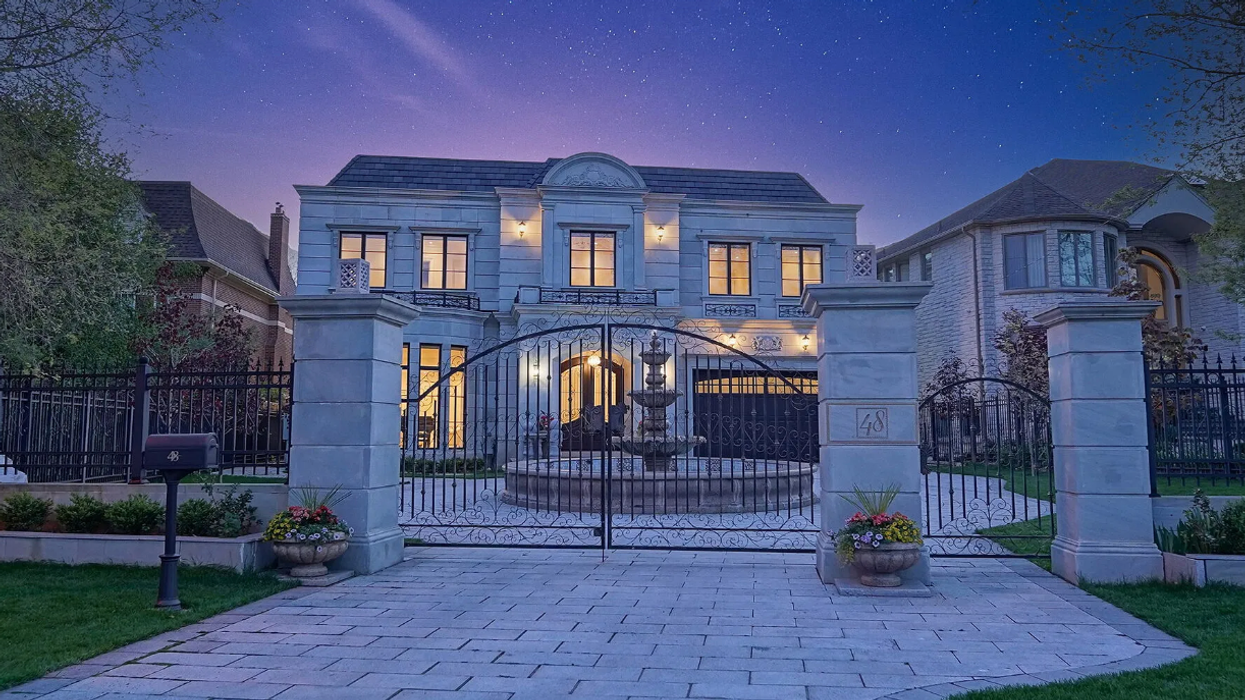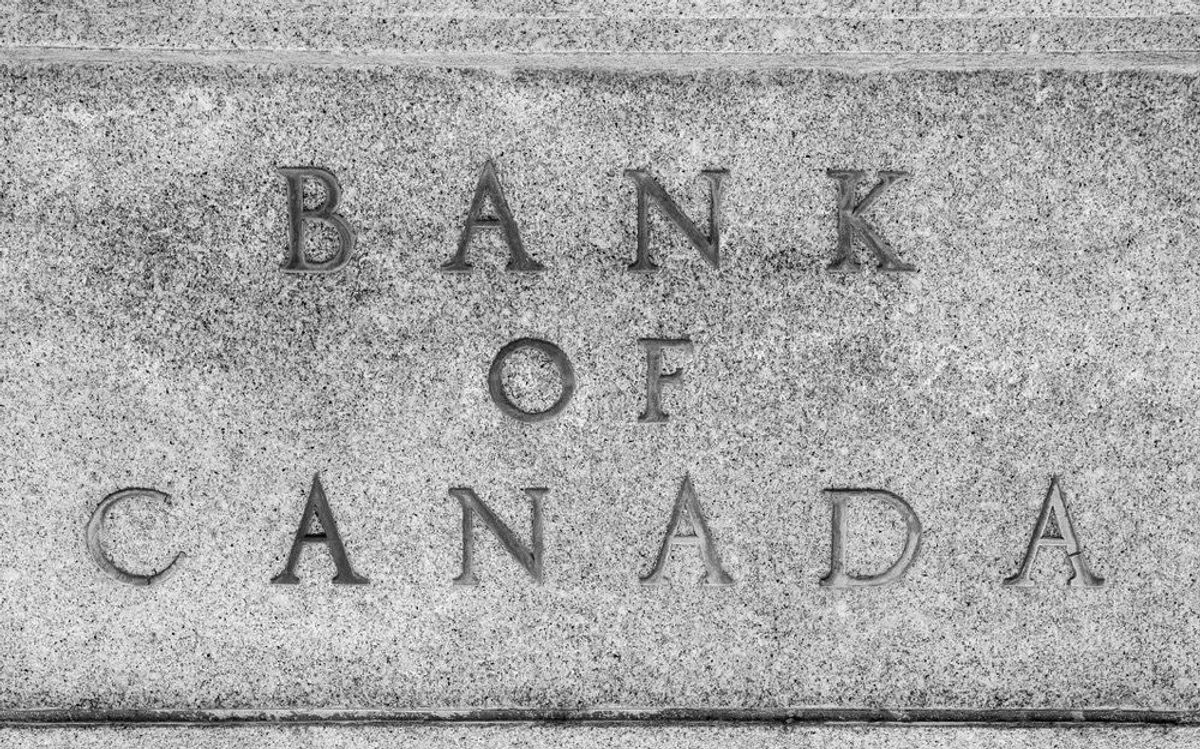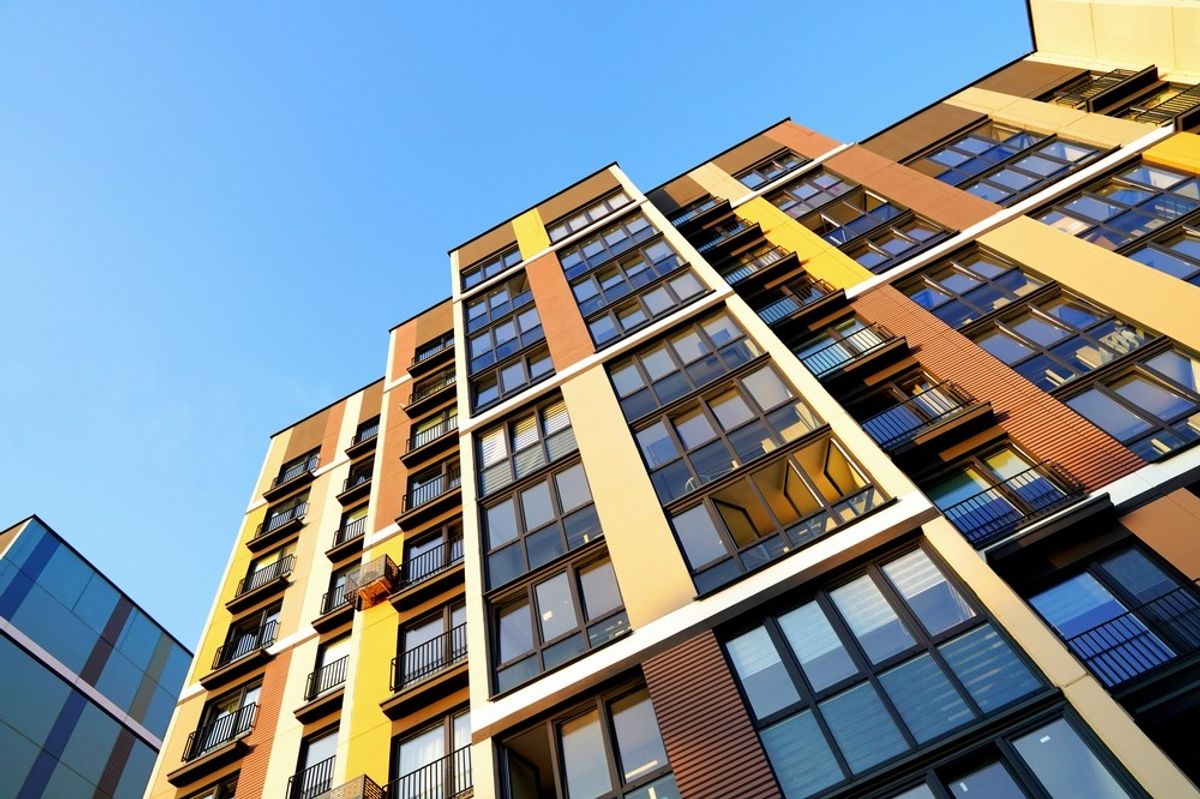Canada's luxury real estate market remained steady in the third quarter with slight gains in a number of key markets, according to Sotheby’s International Realty Canada’s Top-Tier Real Estate: Fall 2024 State of Luxury Report.
In Toronto and Vancouver, the luxury condo market slipped into a buyers market this quarter, thanks to rising inventory outstripping demand in both cities. The luxury single-family home markets, despite persistent demand, have also shifted to favour buyers in these key markets, "creating advantageous conditions for purchasing luxury homes in cities typically renowned for hyper-competition," says the report.
According to Sotheby’s experts, current conditions for luxury real estate buyers in the long-coveted cities of Vancouver and Toronto are the most favourable since 2017.
"In recent years, the demand for upward housing mobility across the conventional and luxury housing markets of Canada’s largest cities has risen to all-time highs. However, these aspirations have been out of reach for many Canadians due to skyrocketing housing prices and intense competition for available property inventory," says Don Kottick, President and CEO of Sotheby’s International Realty Canada. "This fall, homebuyers and investors are set to encounter some of the most favourable conditions in years for purchasing or upgrading their homes as top-tier property listings supply increases, interest rates decline, and housing prices stabilize or even decrease in certain communities."
Vancouver
Starting off slow with one of the sleepiest markets in Q3, Vancouver saw some of the biggest declines in luxury sales activity brought on by a combination of "economic and political uncertainty, persistently high housing prices, increasing living costs, and concerns about public safety and urban disorder in key neighbourhoods."
Luxury sales of condos, attached, and single-family homes priced at $4 million+ in the City of Vancouver dropped 13% to 49 sales between July 1-August 31 on a year-over-year basis. Of the 49 sold, 86% were single-family homes, down from 89% in Q3 2023. Sales of ultra-luxury $10 million+ homes remained steady this quarter at four sales, and overall, top-tier home sales over $1 million fell 15% year-over-year to 572 sales, according to the report.
Sotheby's also reported "muted sales activity" in September, foreshadowing a "reserved" fall. There were no ultra-luxury properties sold over $10 million last month, 12 homes over $4 million were sold (all single-family), down 52% from last year, and sales over $1 million declined a significant 31%, with 213 properties sold in September, 84 of which were single-family homes.
On the condo front, the buyers' market remained strong with rising inventory in both the resale and pre-construction segments. During the summer, overall top-tier condominium sales over $1 million dropped 19% year-over-year to 184 condos sold, and a larger 24% yearly decline was posted for September. Seven condos priced at $4 million+ sold this summer, compared to last year's six, though no sales were recorded in September, and $10 million+ sales clocked in at one sale this summer, up from zero last year.
Calgary
They say comparison is the thief of joy, so it's unfortunate that just across the Rockies, Calgary's booming luxury market is putting Vancouver's lethargic third quarter to shame. In Q3, Calgary "solidified its position as a leader in Canada’s luxury real estate market, as locals and newcomers continued to invest in top-tier real estate, buoyed by confidence in the city’s healthy economy and relative affordability," says the report.
Fuelling this growth are the 89,198 net migrants that Alberta welcomed in the first half of 2024. In part, this population increase has bolstered demand just through sheer numbers, but it's also grown the luxury market by increasing median housing prices, explains the report. In September, for example, the benchmark price of a Calgary home rose 5% year-over-year to $596,900, with annual gains ranging from 9% for single family homes to nearly 14% in the condominium market.
As a result of this upwards pressure on prices, luxury home sales over $1 million rose by a record-breaking 46% year-over-year in the first half of 2024. And it appears the trend continued into the summer with Calgary posting a 31% year-over-year increase in $1 million+ homes, amounting to 337 sales. For homes priced at $4 million+, only one property sold this summer, consistent with 2023. In September, overall luxury sales increased by 15% from 2023, totalling 156 transactions, two of which were $4 million+, up from zero units last year. There were also zero $10 million+ sales in Q3 2024, in keeping with 2023.
Attached and single-family homes drove market demand, with single-family homes accounting for 83% of transactions above $1 million this summer and representing a 23% year-over-year increase to 279 homes. Relatively high activity continued into September with 132 $1 million+ single-family homes sold that month, representing an 11% increase from last year.
Attached homes over $1 million saw a dramatic 124% year-over-year increase this summer, followed by a 83% increase in September. “'Move-up' buyers continued to pursue Calgary’s attached home market, resulting in strong sales activity and upward price pressure over the summer," explains the report.
Calgary's luxury condominium market, though still on the ups, saw a more modest growth this quarter, likely due to the fact that "the desire for more space and greater square footage aligns with the lifestyle aspirations of the local population and those moving to the city," explains Sotheby's experts. Over the summer, luxury condominium sales over $1 million increased by 10% year-over-year to 11 properties sold, with no sales in the $4 million range. In September, conditions contracted even more with a year-over-year decline in condo sales over $1 million from five units to two.
Greater Toronto Area
In the GTA, population increases helped to balance the luxury market, "as the dynamic between home sellers and prospective buyers matured to align with current market dynamics," says the report. Also helping to bring things back into balance were sellers demonstrating "a greater willingness to price properties realistically and to make necessary concessions," resulting in a more active luxury market.
Starting with luxury homes priced at $1 million+ in the City of Toronto, the City saw a 7% year-over-year decrease in the summer months, clocking in at 1,356 properties sold. In September, that number improved slightly, posting a 2% decline from 2023. In the $4 million+ territory, Toronto experienced a notable 18% year-over-year increase to 45 sales this summer, and as new listings supply and buyer activity renewed in the fall, 23 $4 million+ properties sold in September, roughly matching last year's numbers. Sales over $10 million jumped year-over-year from one to four this summer, and from zero to one in September.
Across the wider GTA, sales also dipped for homes priced at $1 million+ this summer, recording an 11% decrease year over year, though sales saw an annual increase of 2% in September. Home sales at $4 million+ remained stable in the GTA this summer, but posted a 9% year-over-year increase in September. $10 million+ property sales ticked up from three to five this summer, though no transactions were posted for September, as was the case in 2023.
Breaking it down by unit type, single-family homes remained in high demand in Q3, as those shopping in the luxury market "continued to pursue single family homes for lifestyle and investment purposes." As a result, single-family home sales over $4 million in the GTA and Toronto saw the biggest yearly increases compared to attached homes and condos in Q3. In Toronto sales increased by 20% for these properties compared to last summer, but across the GTA, the percentage increase was a more modest 4%.
On the attached home front, despite persistent demand, the region's "ongoing shortage of medium-density housing" has meant that sales for this unit type declined this quarter. In Toronto, attached home sales over $1 million were down 12% year-over-year, and across the GTA, $1 million+ attached home sales saw a more substantial annual decline of 19% this summer.
Things were quiet in the Toronto and GTA luxury condo segment this quarter, with almost no year-over-year difference in condo sales over $4 or $10 million, but sharp declines were felt in the $1 million+ market. In the summer, sales in this price range saw a yearly decline of 30% in Toronto and a more significant yearly decline of 35% in September.
Montreal
Last but not least, Montreal's luxury market continued to be on the ups this quarter, following a 25% year-over-year increase in $1 million+ home sales in the first half of 2024.
Over the summer, sales over $1 million increased by 15% year-over-year, and in September, that metric jumped to 83%. However, homes sales for properties priced at $4 million+ dropped by 44% compared to last summer and by 33% compared to last September. There were no sales in the ultra-luxury $10 million+ category in the third quarter of 2024, compared to a single sale in the same period last year.
Like Calgary and the GTA, luxury single-family home purchases drove sales activity in Q3, amounting to 44% of all residential sales over $1 million during the summer. These sales also represented a 17% year-over-year increase in sales over $1 million.
Luxury attached home sales remained stable from previous year’s levels this quarter, but Montreal's condo market saw some action with a 29% year-over-year increase in $1 million+ sales. However, the $4 million+ condo segment was comparatively quiet, with no sales in July and August, compared to three transactions last summer.
But come fall, condo sales over $1 million increased by a whopping 114% year-over-year in September, and $4 million+ sales doubled year-over-year to two properties sold.
“Although we expect the luxury market to remain largely stable in the coming months, over the longer term, there is no doubt that population growth will intensify competition for housing," says Kottick. "Further, rising building costs and ongoing bureaucratic and policy barriers will only discourage construction. This means that there is an opportunity to take advantage of the favourable home-buying conditions we are seeing today.”





















